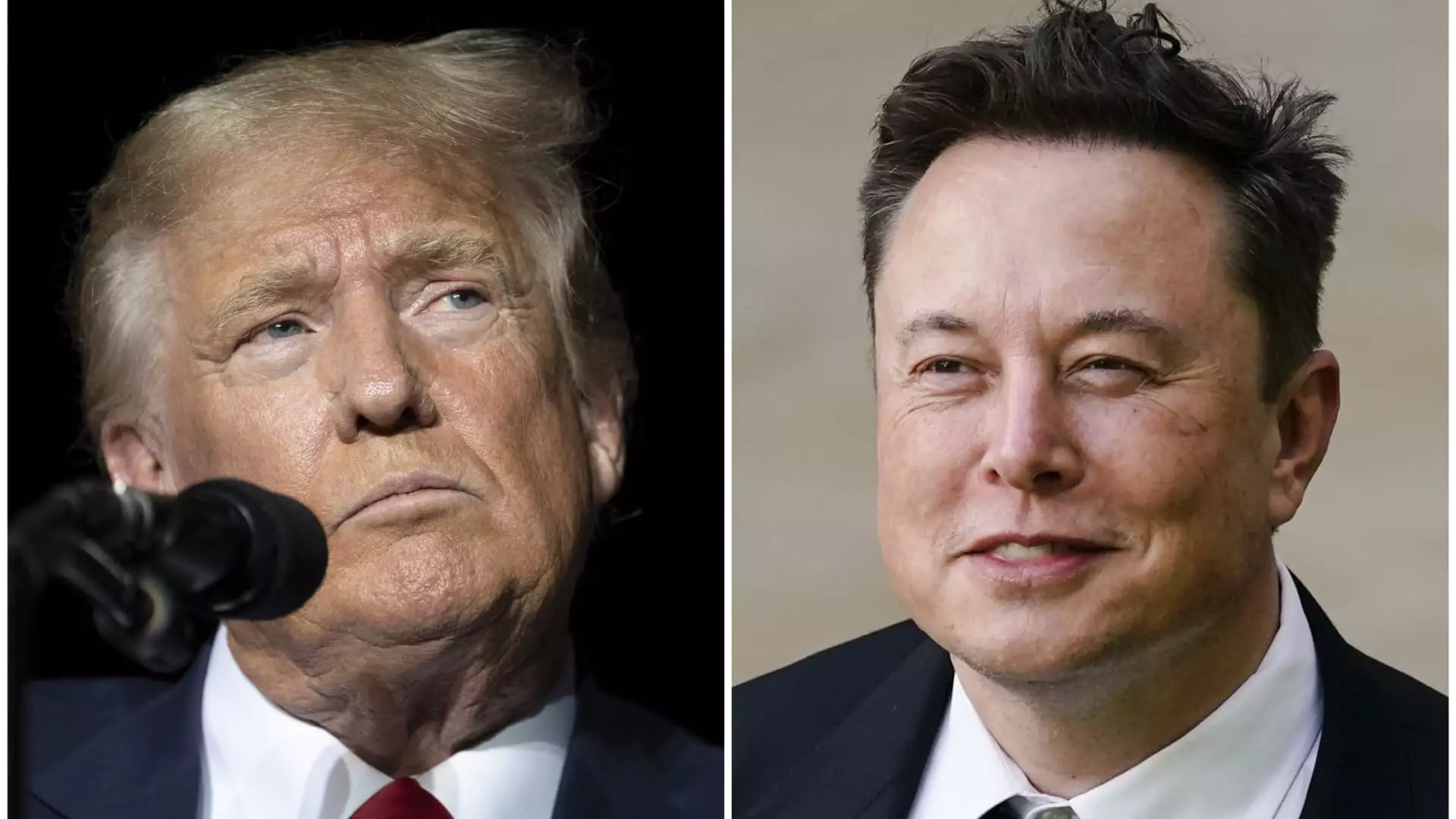The announcement of a landmark $500 billion initiative to bolster artificial intelligence infrastructure in the United States has stirred both excitement and skepticism in the tech community. Backed by influential figures like President Donald Trump and major companies such as OpenAI, Oracle, and SoftBank, the Stargate project aims to catalyze innovation and create hundreds of thousands of jobs. However, as is often the case in the fast-evolving world of technology, the situation is not without its complexities and disputes.
Concerns Over Financial Viability
Elon Musk, the CEO of Tesla and SpaceX, made headlines with his emphatic assertion that the promised funding from tech giants may not be possible. Musk’s claim, articulated through his social media platform X, suggested that SoftBank’s financial backing was far less than stated, potentially undermining the credibility of the Stargate venture. He argued that SoftBank had secured “well under $10 billion,” provoking reactions from industry leaders and raising questions about the authenticity of the project’s financial foundation.
Musk’s assertive remarks set the stage for a public dispute, highlighting not only the competitive tensions between leading figures in tech but also the precarious nature of funding in ambitious projects like Stargate. His comments hinted at an undercurrent of skepticism regarding the ability of these corporate entities to deliver on grand promises, casting shadows on an otherwise optimistic initiative.
In a noteworthy response, OpenAI CEO Sam Altman expressed his admiration for Musk while firmly contesting his financial evaluation of SoftBank. Altman’s measured tone contrasted with Musk’s fervor but underscored the complexities of maintaining professional relationships in the high-stakes tech landscape. He acknowledged the diverging interests at play, delicately navigating the tightrope of respect and critique. His diplomatic approach illustrated the challenge of balancing competition with cooperation, particularly when public perception and corporate reputations are at stake.
Furthermore, the presence of other tech leaders—like Oracle’s co-founder Larry Ellison and SoftBank’s Masayoshi Son—at the announcement event accentuated the collaborative spirit required for such a massive undertaking. Ellison’s discussion of ongoing construction projects for data centers illustrated tangible progress, yet it also placed pressure on stakeholders to deliver results amid growing skepticism from influential figures like Musk.
This initiative is not just a corporate endeavor; it is also deeply intertwined with political dynamics. Musk’s involvement, particularly with his role in Trump’s government efficiency advisory board, infuses a political angle that could shape strategic decisions. Musk’s criticism could be viewed as a challenge to the project’s governance, compelling stakeholders to prove their commitment and financial viability to both the tech sector and the public.
Moreover, Trump’s ambitions for the Stargate project underscore the intersection of technology and policy, as he emphasizes the need for American leadership in AI versus growing foreign competition, particularly from China. This framing presents both an opportunity and a challenge, serving as a rallying point for national pride while also heightening scrutiny of the project’s actual capabilities.
The Stargate project embodies the dual forces of aspiration and adversity that frequently characterize the tech industry. While the potential for job creation and innovation is significant, the ensuing debates underscore the necessity for transparency and accountability in financing these grand initiatives.
As this saga unfolds, several questions linger: Will the initiative realistically launch with the promised level of funding? Can the relationships between these power players withstand the pressures of competition and public expectation? Moreover, how will this financial fracas impact the broader landscape of AI development in the U.S.?
The Stargate project represents a critical juncture for the future of AI infrastructure in America. While it holds the potential to redefine technological advancement and stimulate economic growth, it also serves as a reminder of the complexities and challenges inherent in such ambitious endeavors. The coming days will reveal whether the collaborative spirit and financial commitments can live up to the grand vision laid out on that fateful announcement day.

